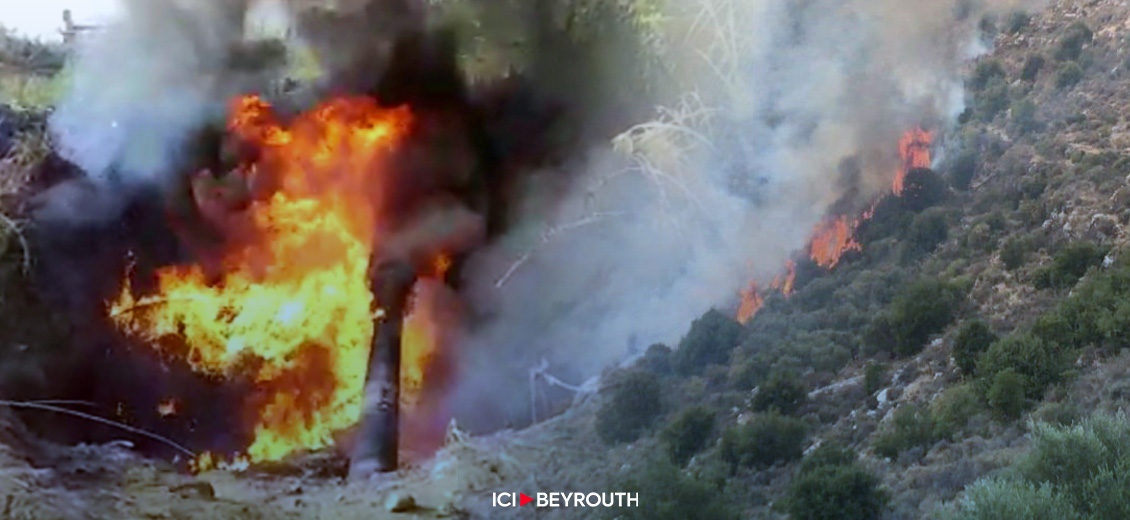Following a leak, an oil pipeline caught fire in Akkar, northern Lebanon on Sunday. The fire has been kept under control, but the health and environmental problems of such events are important.
On Sunday morning, the pipeline connecting Iraq to Lebanon caught fire in the locality of Qaabrine in Akkar, in northern Lebanon. The fire was due to oil leaks, the dilapidated structures had several perforations. The incident was quickly brought under control and the pipes were temporarily sealed.
Built in 1930 by the IPC (Iraq Petroleum Company), the pipeline has been out of service since the beginning of the civil war in 1975. It was designed to transport oil from Iraq to Tripoli. Tripoli’s deputy director general of oil installations, Hadi el-Houssami, said in September 2021 that the damage to the Iraqi pipeline was due to attempts to steal fuel.
It is not the first time that this pipeline has caught fire. This poses a danger to the environment and health. Charbel Afif, dean of the chemistry department of the Faculty of Sciences of the Saint Joseph University of Beirut and an expert on air pollution, explains to Ici Beyrouth that this fire releases carbon monoxide, nitrogen oxides (NOx), fine particles such as PM2.5 and polycyclic aromatic hydrocarbons (natural constituents of coal and oil, which also come from the incomplete combustion of organic matter such as fuels, wood, tobacco).
“Crude oil releases more contaminants than its fractions when refined (diesel, benzene, kerosene, etc.), notes Mr. Afif. In the event of repeated fires and leaks, it will release very toxic pollutants in the short and long term.” Breathing problems may occur at first. Long-term, cardiovascular problems, even an increased risk of cancer (if the accident is recurring).
Charbel Afif says oil spills are a “disaster” for nature, as black gold seeps into the ground and could remain at shallow depths, contaminating farmland and crops. “The pollutants contained in the oil will be absorbed by the plants and then ingested by the consumers, he warns. The second risk would be to contaminate the soil deep down to the groundwater and therefore to ruin such precious reserves of pure water”.
For him it is important to combat this type of loss, “because the pollutants generated both in the air and in the soil and water are very dangerous and toxic”.
Similar incidents have occurred regularly over the past few years and local residents have asked the authorities to find a solution to this life-threatening problem. No action has been taken to date.

:quality(70)/cloudfront-us-east-1.images.arcpublishing.com/lanacionpy/ROGFDBIZOFBDLD3XFR3L6VHQSU.jpg)
